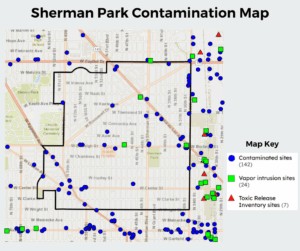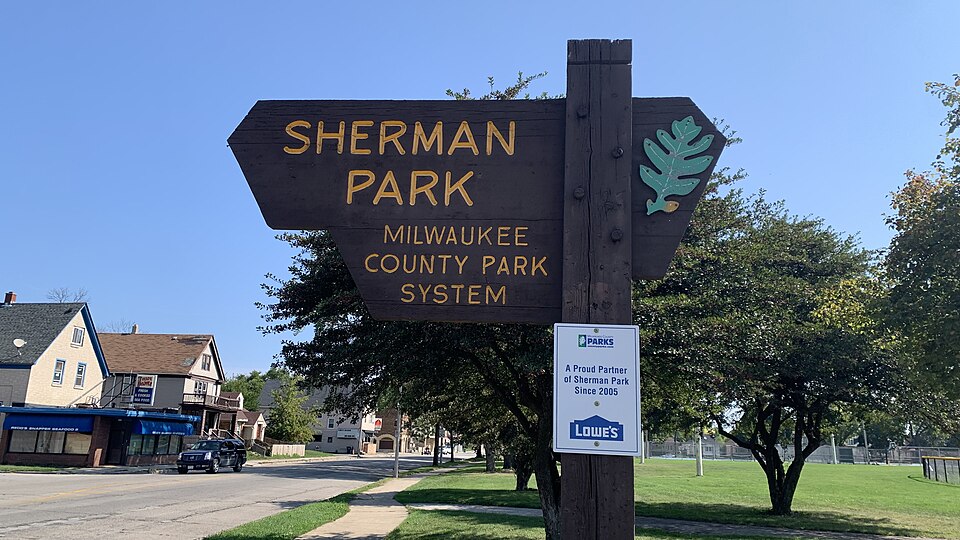A growing relationship between Clean Wisconsin’s Resilient Communities Program and Science Program teams and local organization, Data You Can Use (DYCU), is helping to bridge the gap between lived community experiences and environmental health data. This project seeks to provide accurate environmental health portraits at the neighborhood level in Milwaukee.
On September 6th, Resilient Communities Program Director, Nancy Grimaldo Retana, and Science Program Director, Paul Mathewson, Ph.D., co-led a Data Chat with DYCU staff. Data Chats are a community conversation technique developed by DYCU that centers residents’ perspectives and interpretation of local data collected. They are designed to both inform residents about the environmental health risks in their neighborhood and to gather their opinions, stories, and lived experience. This Data Chat was the first in a series throughout Milwaukee neighborhoods.
Since 2016, Data You Can Use has operated with a mission of “advancing community access to data and the skills needed to drive informed and equitable decision-making in Milwaukee and beyond.” Fostering trusting relationships with community members and organizers is central to Clean Wisconsin’s work on the northside of Milwaukee. These Data Chats reflect a natural collaboration between our organizations while also advancing Clean Wisconsin’s environmental health initiative.
Clean Wisconsin and DYCU staff presented neighborhood-level data on air pollution, traffic, contaminated sites, and health indicators—alongside county-wide comparisons. After each section of data was presented, residents were given time to reflect on the information and share their reactions. They discussed what surprised them and what they were most concerned about. Residents also had time to share their lived experiences, knowledge, and advice related to environmental health in their neighborhood.
reflect on the information and share their reactions. They discussed what surprised them and what they were most concerned about. Residents also had time to share their lived experiences, knowledge, and advice related to environmental health in their neighborhood.
Sherman Park residents were surprised by some of the data and expressed no surprise at other data points. What was most striking to attendees was the site contamination map that was shared by Paul Mathewson, with those in attendance noticing several sites within close proximity to their homes or homes of friends and family.
Residents in attendance all echoed the need for better trash management, from both caring neighbors and trash workers clearing spilled trash items during pickup. Litter has been an issue in Milwaukee; however, the impacts were felt especially during the flood event of August 9th and 10th as storm drains clogged with trash failed to alleviate street flooding. While there were long conversations about health and environmental concerns, residents of Sherman Park also shared many aspects of the neighborhood that they hold pride in. From tree canopy coverage to safety initiatives and the presence of the Sherman Park Community Association, the community of Sherman Park works hard to care for their neighbors and contribute to the beauty of Milwaukee.
Looking ahead, we aim to host additional Data Chats in neighborhoods where we have had a long-standing presence through our green infrastructure work. These conversations serve as a way for us to gauge what issues are the most important to each community and assist them in pursuing projects that build resilience, pride, and promote environmental health at a neighborhood level.

